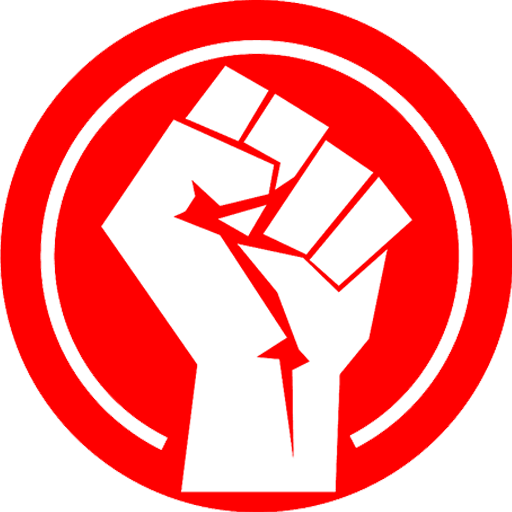In today’s society, many people are working harder than ever. The focus isn’t just on doing their job, but on earning as much as possible. This drive often turns into paycheck addiction, where the need to work excessive hours and earn more money becomes an unhealthy obsession. If this sounds familiar, it’s important to understand the risks and how to break free.
What is Paycheck Addiction?
Paycheck addiction is when a person becomes overly fixated on earning money through excessive work. It’s not about passion for the job; it’s about the need for financial security, status, or approval. This obsession often leads to people sacrificing their personal life, health, and well-being in the pursuit of more pay. They may stay late at work, take on multiple jobs, or constantly worry about their income. But at what cost?
Many people don’t realize how paycheck addiction impacts them. It creates a cycle where the more you earn, the more you feel you need. This addiction isn’t just about work; it’s about chasing an ever-moving financial goal that doesn’t bring satisfaction. It can affect everything, from your physical health to your personal relationships.
Why Do People Become Addicted to Paychecks?
There are several reasons paycheck addiction takes hold. Understanding these can help you identify if you’re caught in the cycle.
1. Financial Insecurity
For many, paycheck addiction starts with fear. Fear of not having enough money to pay bills or save for the future. This fear can drive people to work longer hours, believing that more money will ease their anxiety. However, the reality is, it rarely does. Instead, it leads to stress and burnout.
2. Ambition and Social Pressure
In today’s world, success is often defined by how much money you make. This pressure to achieve financial success can push people to work beyond their limits. Whether it’s keeping up with peers, trying to buy a bigger house, or impressing others with luxury items, the need for social status can lead to paycheck addiction.
3. Lack of Work-Life Balance
Many people struggle with separating their work from their personal life. In some industries, especially high-pressure ones, long hours are expected. Even in other fields, people may feel obligated to work extra hours to stay ahead. This inability to set boundaries creates a situation where work takes over everything.
The Real Impact of Paycheck Addiction
The obsession with earning more money can harm various aspects of your life. Let’s break it down.
1. Mental Health Struggles
Chronic stress is a major issue for those suffering from paycheck addiction. The constant pressure to earn more can lead to anxiety, depression, and even burnout. Over time, this stress becomes overwhelming. The work never feels done, and happiness feels just out of reach. This can lead to a deep sense of dissatisfaction, no matter how much money you earn.
2. Physical Health Risks
Stress isn’t just a mental problem. It can also take a toll on your body. People with paycheck addiction often neglect their health, skipping exercise, sleep, or meals to work longer hours. This leads to higher risks of heart disease, high blood pressure, and sleep disorders. Overworking can also weaken the immune system, making you more vulnerable to illnesses.
3. Damaged Relationships
Another major consequence of paycheck addiction is the strain it places on relationships. When work always comes first, your relationships with family, friends, and even romantic partners suffer. You may miss important events, fail to connect emotionally, or feel distant from the people who matter most. Over time, this disconnect can cause tension and even lead to breakups or family conflicts.
4. Increased Risk of Burnout
If you keep pushing yourself, burnout is inevitable. The combination of stress, lack of sleep, and poor self-care wears you down. When burnout hits, you lose the ability to perform at your best, and work becomes even harder. This creates a vicious cycle: more work, more stress, more burnout.
Facts and Figures About Paycheck Addiction
Here’s a snapshot of how paycheck addiction is affecting workers worldwide:
| Fact/Statistic | Detail |
|---|---|
| Percentage of workers feeling burnout | 60% of employees report feeling burnout due to excessive workload. |
| Impact of overtime | Employees working 10+ hours of overtime weekly have 35% higher chances of developing heart disease. |
| Financial insecurity | 42% of Americans say they experience financial stress regularly, contributing to workaholism. |
| Work-life imbalance | 50% of workers feel they have no clear boundary between work and personal life. |
| Mental health issues | Over 45% of people with paycheck addiction show signs of anxiety or depression. |
Source: National Institute for Occupational Safety and Health (NIOSH), 2023.
These numbers highlight just how widespread paycheck addiction is and why it’s essential to recognize it early.
How to Overcome Paycheck Addiction
If you’re struggling with paycheck addiction, it’s not too late to change. Start by taking small, manageable steps to regain control over your life.
1. Set Boundaries at Work
The first step to breaking free is creating clear boundaries. Decide when you will stop working each day. Stick to those boundaries, even if it feels hard at first. This will help you find time for family, hobbies, and relaxation. Remember, your well-being matters more than your paycheck.
2. Focus on Self-Care
It’s easy to neglect your health when you’re obsessed with earning money. But self-care is critical. Get enough sleep, eat well, and exercise regularly. Consider practicing mindfulness or meditation to reduce stress. When you take care of yourself, you’ll have more energy and a clearer mind to handle challenges.
3. Develop Hobbies Outside of Work
Find activities you enjoy that have nothing to do with your job. Whether it’s painting, hiking, or reading, hobbies help you disconnect from work. They give you a sense of fulfillment that money can’t buy. Plus, they provide a healthy distraction from the constant drive to earn more.
4. Seek Financial Guidance
If money worries are driving your paycheck addiction, it might be helpful to work with a financial advisor. They can help you create a budget, save for the future, and set realistic financial goals. Understanding your finances can reduce stress and help you focus on what truly matters.
5. Reflect on Your Values
Take time to reassess your goals. Ask yourself, “What really matters to me?” Is it money, or is it health, happiness, and relationships? When you align your life with your true values, the need to constantly chase after more money will start to fade.
Conclusion: Breaking Free from Paycheck Addiction
Paycheck addiction is a real and growing problem. It can damage your health, relationships, and happiness. But it doesn’t have to control your life. By setting boundaries, focusing on self-care, and reassessing your financial goals, you can break free from this cycle.
Remember, the key to happiness and fulfillment isn’t found in your paycheck. It’s in the balance between work, relationships, and personal well-being. If you’re ready to take back control, start small, and make changes that will lead to a healthier, more satisfying life.


